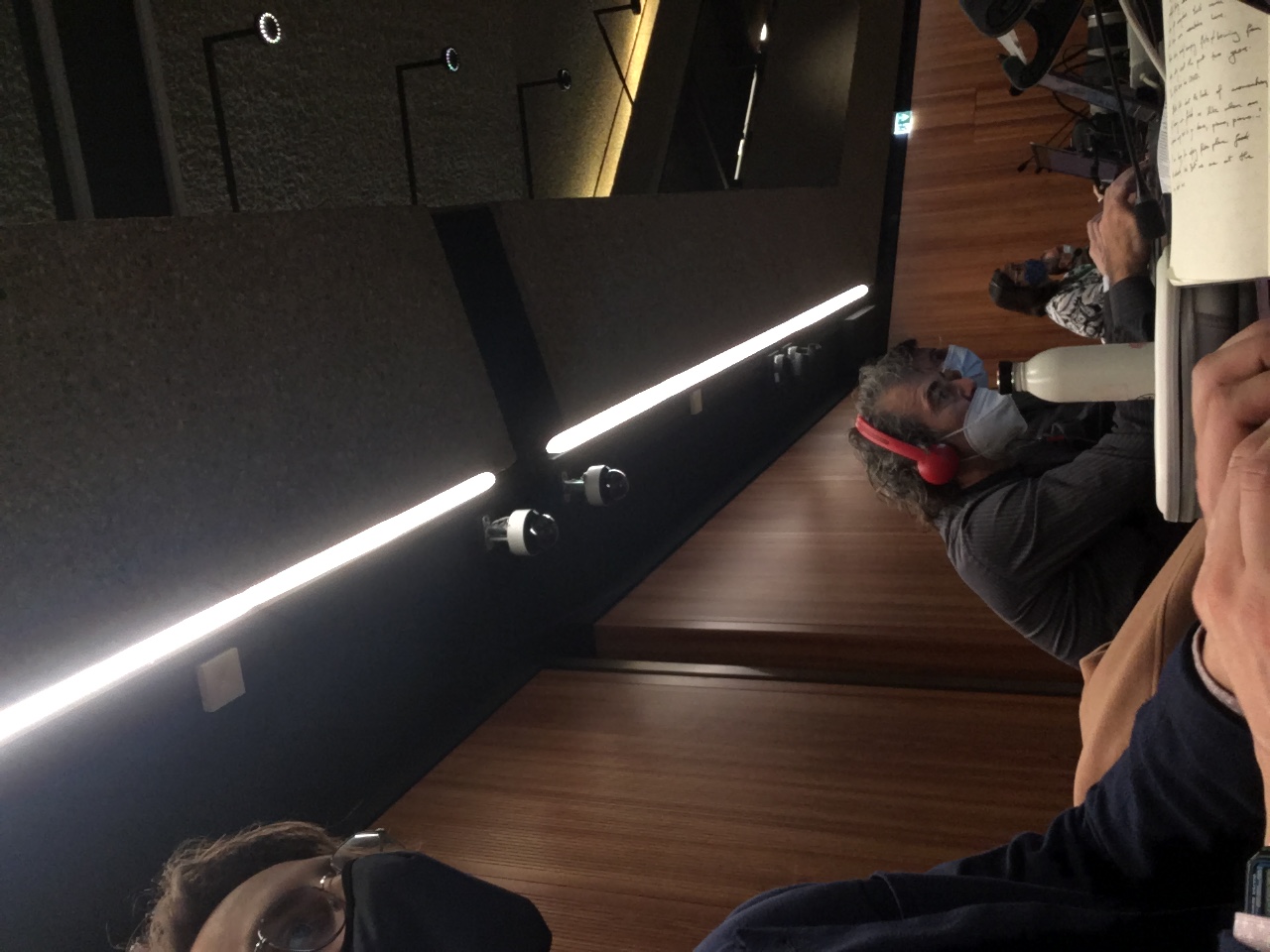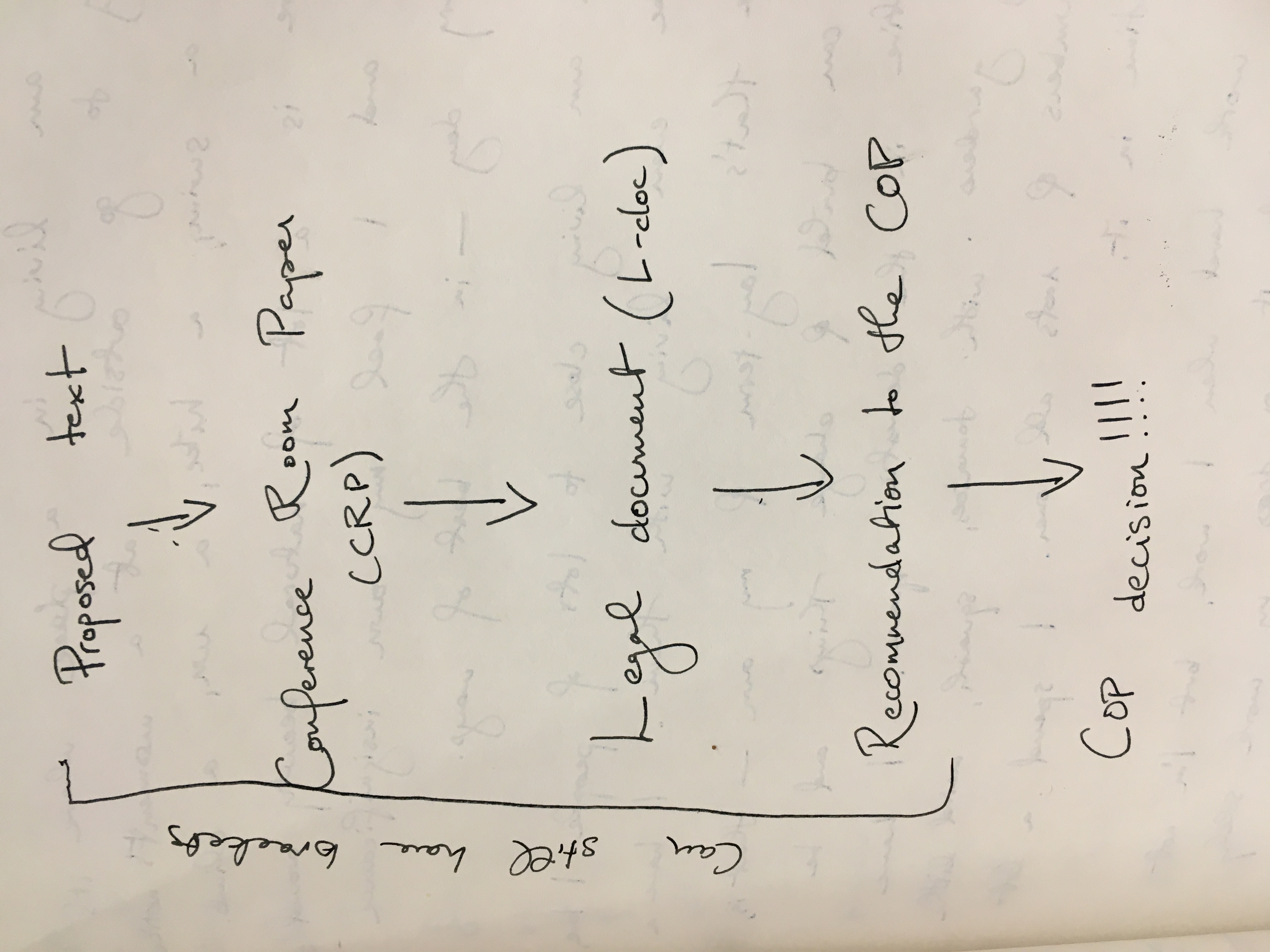[FMAL-15] Plenary Season
Plenary season, friends. Get your inflatable sleeping mats and caffeine pills. Or just chug along like me, Bernard Soubry, and read some Fondue, and Maybe a Lake.
I’m starting this blog, against my normal habits, during our Saturday night editing session, because I’m going to try to sleep in as much as possible tomorrow. I’m going to sleep in because I’m not sure when I’ll next get to bed. It’s final plenary season.

The longest final plenary I’ve been went 37 hours over the intended end. I have never been to a final plenary for a contested negotiation that ended on time. I have slept on floors for plenaries, bartered energy bars with security guards to feed myself in the long nights, even (almost) drunk coffee (before stopping myself, because some things you can’t undo). Ooh, yeah, baby, plenary season: the best time of the year.
Why are plenaries so important? The easy answer would be a sense of procedure and a love of masochism. The more complex answer is that they’re pretty much the only way to set up the next meeting.
The whole point of this intersessional meeting is to set up the COP. You want as few controversial documents as possible, as little text to work through as you can managed. The ideal COP is just a day where everybody sits down and approves papers. In practice, does this happen? Never.
Normally, a text’s life looks a little like this:
Recommendations to the COP have to be agreed upon by the whole body, which means meeting in plenary. There are some plenary meetings during the meeting, sure, but you agree on recs when the whole thing is over, usually: during the Final Plenary.
It's the ✨final countdown✨: SBSTTA is now meeting for its final plenary @UNBiodiversity--and it's the only body meeting today (at least, for now).
— Earth Negotiations Bulletin (@IISD_ENB) March 27, 2022
Three L-docs down. Only *checks* ten to go. ☕️
Follow along here, and with our reporting: https://t.co/7JEnMZGie4
If you want it to go pretty smoothly, you should keep to the following guidelines:
1) You should try to have as few brackets as possible in whatever document gets to the next stage. (This is called “clean text”, which sounds like no one can open it up again; of course, infuriatingly, any party can reopen it at any time, even though it will get you dirty looks.)
2) It’s OK to bracket stuff if you can’t find agreement and just want to move on with the document. BUT—
3) Whatever brackets you might have in an adopted document are going to get pushed down the line, so be careful what you wish for.
Plenary Season lives in the tension between #2 and #3: subsidiary body chairs are going to try to take out whatever brackets they can at the last minute, and everyone is going to try to keep their views in as much as possible. There will likely be a locking of horns. Everyone will say stuff like “I’m in your hands.”
It would be easy to suggest that any plenary that doesn’t just accept texts is a failed plenary—anyway, if you have brackets, it means that the negotiations went overtime; lack of agreed language means that contact groups couldn’t make the right decisions fast enough. But it’s helpful top keep some things in mind:
Negotiators don’t have opinions, they have mandates. If one country wants A and the other wants B, and neither has the instructions from their capital to accept AB, they just won’t; they would lose their job if they did, and the decision would be reversed.
Relatedly—only ministers can make unilateral political decisions. Some decisions that have been controversial for the whole meeting are actually foreign or domestic policy, the kinds of chips that don’t get played in intersession. So some stuff has to go to the COP, anyway.
And finally—agreement doesn’t actually mean anything is going to get done. Refer to an older post(from what feels like the late ‘50s now)—plenaries, especially when they start going into the late hours of the night, start to be almost physically painful. People start to be willing to do anything to stop. It would just be so much easier to send something to the COP. So you agree, with or without brackets, with what is liveable and within the mandates.
But this is not political will (or lack thereof), and it’s no guarantee that the ambition of what is agreed upon is at the level of reality. Finishing doesn’t mean winning. And, as Bill McKibben says it so well, winning slowly is the same thing as losing.
I’m sending this little newsletter at 11:00 on Sunday morning. I slept a bit, but not enough. The final SBSTTA plenary has started. We’ve been talking about the same document for the past hour. I could really use some tea.
Stay tuned for updates, if anything happens. And if we ever get out of here.
What day is it and where am I,
B
